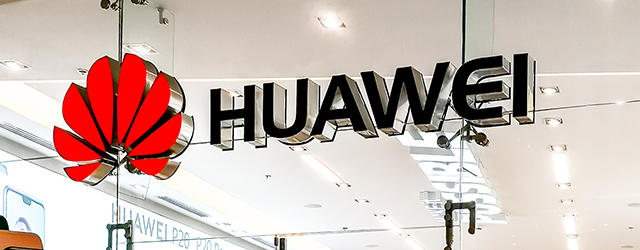What does 5G and the Chinese smartphone maker Huawei share in common with the accelerating trade war between Washington and Beijing?
President Donald Trump wants the US to lead in 5G technology. What’s at risk is more than just claiming rights. The conclusion of the 5G race is possibly going to determine whether the US will be successful to maintain its technological dominance and manipulate geopolitics for the next couple of decades or if it will lose control to China, which entertains technological advancement as a reason for becoming a superpower.
In front of the Canon is Huawei. A couple of years ago, most Americans had likely never heard of the company. Now it shares headlines almost every day as a frontline of the Washington-Beijing trade war. As far as Huawei is concerned, it is a dominant developer of the 5G market. But national security experts claim that the company’s close ties to the Chinese government could compromise the privacy and security of the US and its allies, because its system could be used for spying purposes or to shut down crucial communication systems in case of possible conflict in far or near future.
As China is in a transition state to become a country that dominates in advanced technologies like AI, autonomous vehicles, robotics and 5G from a country previously known for making toys and cheap plastic stuff. US intelligence officials believe that rely too much on such country could result as intellectual information theft, forced technology transfers, cyber-attacks and biased treatment of foreign investment, according to the Council on Foreign Relations. It’s these concerns that have led to Trump’s tariffs on the import of Chinese goods, the blocking of Huawei and other Chinese tech companies to access the American market and other US sanctions.
To help us better understand why the US is so worried about keeping Huawei out of the 5G race and what it predicts for the future of the wireless world. The simple explanation is that whichever country dominates in the development of 5G technology and deploy it before any other victory seeker will see more economic growth and will have more power.
“The leader of 5G stands to gain hundreds of billions of dollars in revenue over the next decade, with widespread job creation across the wireless technology sector,” the Defense Innovation Board, a group of American business leaders and academics, said in a report for the US Department of Defense earlier this year.
For the US, it means maintaining the technological and economic dominance it developed with its 4G wireless technology. But for China, it’s an opportunity to surpass the US ownership of being a superpower to rise as the economic and geopolitical superpower.
In a blog post last week, former FCC Chairman Tom Wheeler said that “Winning 5G’ is not so much a ‘race’ as it is a process. Characterizing 5G as a contest demeans its great technological progress and the policy challenges that progress presents. 5G should be more than a political talking point; the new network represents the need for a meaningful policy strategy.”


























Leave a Reply